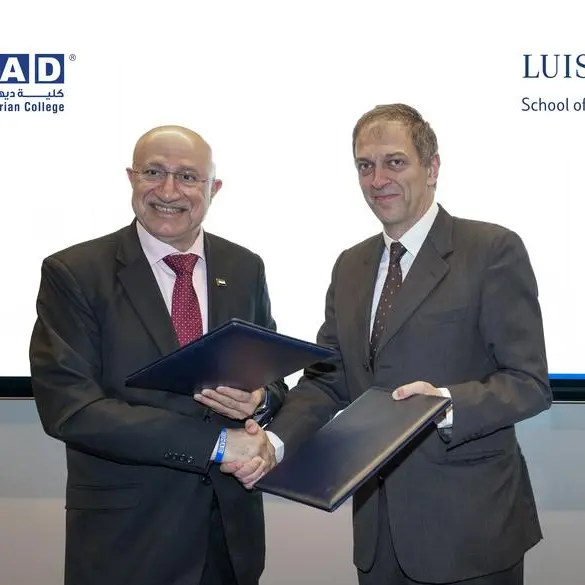A new study from the Mergers and Acquisitions (M&A) Research Centre at Cass Business School has found that a firm’s environmental performance improves after a successful M&A deal and this, in turn, generates a positive outcome for wider society.
Green Business: The Environmental Impact of M&A examines the environmental impact of firms involved in acquisition deals – important corporate actions that may lead to structural changes in the acquirer’s business and operations. The study explores if environmental performance changes before and after a deal and if this change contributes to an improvement in the environmental standard of the firm.
The researchers used a sample of acquisition deals at US public companies from the Thomson Reuters Securities Data Company (SDC). The sample included completed deals with transaction values greater than $1 million during the period of 1996 to 2013 and which involved a change of control.
They found that:
- Prior to the deal announcement, acquirers on average exhibit higher environmental standard than targets.
- Acquirers generally have an improvement in their performance in the post-deal period compared to their respective pre-deal standard.
- Better post-deal acquirer financial performance contributes positively to changes in environmental scores, demonstrating the importance of having economic resources for making environmental commitments.
- Acquirers with prior deal experience have a better ability to manage and improve a firm’s environmental performance after deal completion.
Lead author Dr Zhenyi Huang said the report comes at a time of increasing awareness from both government and society about the importance of environmental issues including climate change, global warming and pollution and therefore the study has important implications for firms involved in M&A deals.
“Although many deals fail to deliver the expected gains due to problems such as integration obstacles, if they do manage to overcome such challenges and successfully generate values, the economic resources created can be utilised to boost a firm’s environmental standard and have further benefits for society,” she said.
Dr Huang said firms and managers planning M&A deals should now examine the environmental standards and practice for both acquirers and targets from the very early stages of the deal process.
“Deal managers should make an effort to learn the skills required to deliver effective allocation and utilisation of pooled resources so any financial values created can contribute more efficiently to a firm’s environmental performance.
“Our study also recommends that firms should manage their environmental policies more effectively alongside other corporate and financial decisions, such as debt policy and cash holdings, because those factors do influence each other,” she said.
Read the report
Read Green Business: The Environmental Impact of M&A here. The authors are Professor Scott Moeller and Dr Zhenyi Huang of the M&A Research Centre at Cass Business School.
Case study
One of the firms used as a case study in the report includes Pfizer Inc’s $68 billion acquisition of Wyeth.
Based on the Environmental Social Governance (ESG) scores reported by the MSCI ESG KLD STATS database, prior to the deal, Pfizer had an environmental score of two, and an overall ESG score of two. Within the scope of environmental practice, Pfizer has a score of one in its climate change policies and a score of two in its overall environmental management system. These positive scores indicate that strengths outweigh concerns in these areas. Pfizer rated minus one in its environmental regulation score prior to the deal, indicating a concern of the company in this area.
Three years after the deal completion, with a superior financial performance, Pfizer had a boost on environmental standard to the score of 4, and with an overall ESG score of 8. This improvement in Pfizer’s environmental and overall ESG scores was also consistent with their internal corporate social responsibility policies that put the management of their ESG standard as one of the major corporate goals, as discussed in their Annual Report.
Media enquiries:
Nahda Abdalla, Senior Communications Officer – Dubai, City, University of London
T: +9714 401 9315 E: nahdah.abdalla@city.ac.uk
© Press Release 2019Disclaimer: The contents of this press release was provided from an external third party provider. This website is not responsible for, and does not control, such external content. This content is provided on an “as is” and “as available” basis and has not been edited in any way. Neither this website nor our affiliates guarantee the accuracy of or endorse the views or opinions expressed in this press release.
The press release is provided for informational purposes only. The content does not provide tax, legal or investment advice or opinion regarding the suitability, value or profitability of any particular security, portfolio or investment strategy. Neither this website nor our affiliates shall be liable for any errors or inaccuracies in the content, or for any actions taken by you in reliance thereon. You expressly agree that your use of the information within this article is at your sole risk.
To the fullest extent permitted by applicable law, this website, its parent company, its subsidiaries, its affiliates and the respective shareholders, directors, officers, employees, agents, advertisers, content providers and licensors will not be liable (jointly or severally) to you for any direct, indirect, consequential, special, incidental, punitive or exemplary damages, including without limitation, lost profits, lost savings and lost revenues, whether in negligence, tort, contract or any other theory of liability, even if the parties have been advised of the possibility or could have foreseen any such damages.



















